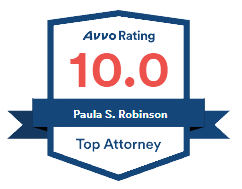You unfortunately had a work injury, but the good news is that your injury has been accepted by the workers’ compensation carrier, and you are receiving wage loss benefits, as well as medical benefits for your work injury. Before we get to the issue of Supersedeas, at some point, you will receive a notice to attend a one-time examination, referred to as an Independent Medical Examination (IME), which you are required to attend by the workers’ compensation carrier. Typically, you will be asked to attend these examinations once every six (6) months, as long as you are receiving wage loss benefits for your work injury; it is not a matter of if…..it is a matter of when.
After you have attended the IME with a physician of the workers’ compensation carrier’s choice, you should receive a copy of the IME report, and depending on what that physician said about your medical condition in regards to your work injury and your capability to return to some type of work, a Petition can be filed against you to try and stop your wage loss and/or medical benefits in some fashion. These Petitions could include a Petition to Modify, Suspend, or Terminate your benefits.
Types of Workers’ Compensation Petitions
MODIFICATION PETITION
Let’s take a minute to understand what each of these Petitions are. The Modification Petition will usually indicate that you are capable of some type of lighter work. If this is the case, your employer will be contacted by the workers’ compensation carrier to see if there is work available in that capacity for you to return to and if the answer is “no”, the workers’ compensation carrier can hire a vocational expert to do an Earning Power Assessment/Labor Market Survey to find work generally available in your area that you would be capable of that would pay you wages less than you were earning at your job before your injury. If the wages at the new available positions would be less than you earned pre-injury, this is referred to as a “modification” of benefits. If a workers’ compensation judge believed that you were capable of working these jobs, then your wage loss benefits could be modified, meaning you would receive less each week in your benefits.
SUSPENSION PETITION
With a Suspension Petition, the same scenario can play out as mentioned above, but if wages would be paid equal to your pre-injury pay, then your wage loss benefits would be “suspended” meaning that you could no longer receive any wage loss benefits, if a workers’ compensation judge believed that you were capable of working those positions.
TERMINATION PETITION
If the IME doctor believes that you are fully recovered from your work injury, then the workers’ compensation carrier will have their lawyer file a Termination Petition against you trying to stop all of your benefits, wage loss and medical. With a Termination Petition, they don’t have to find any jobs for you to return to, just prove to a workers’ compensation judge that you are capable of doing any type of work, including your pre-injury job. If the assigned judge believes this, then your benefits will totally be terminated.
After a Petition is Filed
After one of these Petitions is filed, it will be assigned to a workers’ compensation judge and scheduled for a first hearing. At this first hearing, the lawyer for your employer and the workers’ compensation carrier will present evidence of the IME report, a Notice of Ability to Return to Work (which is a Bureau form), and any other evidence they have to help prove their case. This initial evidence is called “Supersedeas Evidence”, which can be hearsay evidence, not needing someone to testify about it, typically the IME doctor. A request for supersedeas is made by the employer/workers’ compensation carrier lawyer to the judge asking that your wage loss benefits be totally stopped during the litigation process. Depending on the evidence provided, a judge could choose to grant or deny this request. If the supersedeas request is granted, then your wage loss benefits will come to an end. Please note that the supersedeas decision is not subject to appeal.
If the assigned judge denies the supersedeas request, then you will keep receiving your workers’ compensation checks until such time as you either settle your case, or a judge orders that your benefits be stopped. If you receive a favorable supersedeas decision but end up losing the case in chief, ie, your benefits are modified, suspended, or terminated, the workers’ compensation carrier can apply for supersedeas fund reimbursement from the PA Bureau of Workers’ Compensation to get back the monies paid to you from the time that they filed the Petition against you. You, as the injured worker do not have to be concerned about giving any monies back, as the Supersedeas Fund is there to reimburse the carrier.
If you or a loved one are in any phases of the above scenarios, please contact Robinson Law LLC for guidance and representation.









